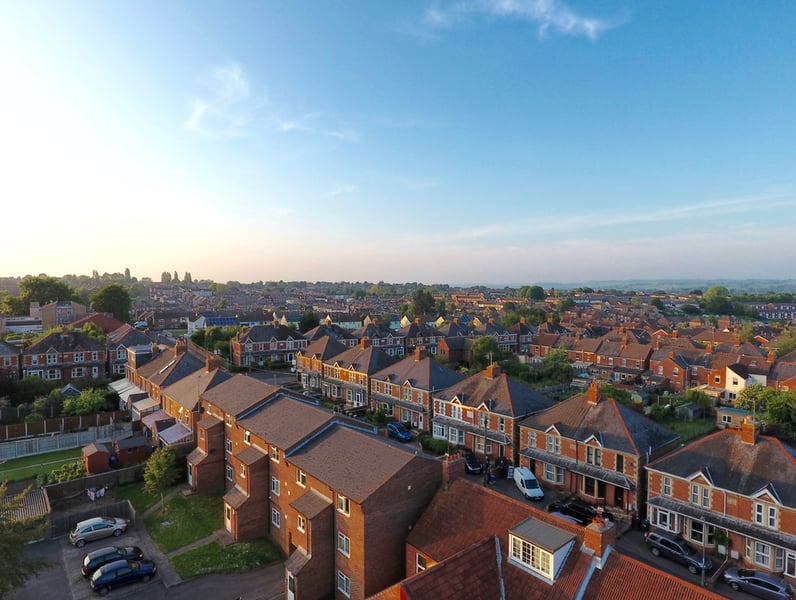However, this is a decline on the 1.7% recorded in December 2019.

Average house prices in the UK rose by 1.3% in the year to January 2020.
However, this is a decline on the 1.7% recorded in December 2019.
Looking at the data on a country-by-country basis, average house prices grew by the greatest margin in Northern Ireland, noting a 2.5% rise to £140,000.
This was followed by Wales, which recorded an uplift of 2% to £162,000, and Scotland increasing by 1.6% to £152,000.
England saw average house prices in the year to January 2020 rise by 1.1%, to £247,000.
Furthermore, regionally, Yorkshire and The Humber and West Midlands noted the highest level of growth over the same time frame, rising by 3.1% and 2.6%, respectively.
Meanwhile, the East of England and the South East of England recorded the largest decline, falling by 0.6% and 0.5%, respectively.
Marc von Grundherr, director of Benham and Reeves, said: “On the face of it, there is certainly no need to panic with prices continuing to climb annually.
“However, while monthly price movement isn’t a great indicator of long-term market health, you’d be forgiven for anticipating the worst with property values already dropping in January, particularly given the fact we know what is to come as a result of the spread of coronavirus.
“It’s certain we are going to see a notable reduction in market activity and while many in the industry are adapting to the changing landscape through the use of technology, the Brexit market bounce expected this year will have to wait as it gives way to a coronavirus crippling.
“The positive news is that unlike Brexit or the previous financial crisis, buyer and seller sentiment remains, they are just unable to transact as normal.
“So with both demand and supply reducing instead of just demand, prices aren’t going to take the same sort of hit.”
Jeremy Leaf, north London estate agent, added: “Although the spread of the virus is overshadowing business, which is as it should be, this comprehensive take on the strength of the UK property market is very interesting.
“It shows what might have been and what still could be, even though increases are a little more modest than the previous month’s surprise spike, as long as the pandemic can be brought under control relatively quickly.
“On the ground, viewings may have dried up but enquiries haven’t. Many, already fed-up with enforced confinement, are clearly hoping to move in the short rather than the longer term.
“If that is the case, we don’t expect prices to suffer too badly if the current shortage of listings continues and government assistance keeps as many in work as possible."
Karen Noye, mortgage expert at Quilter, said: “The UK house price data for January, released this morning, shows that prior to the virus changing our everyday lives there was a modest increase in house prices, which were up 1.3% over the year.
“This is positive considering the uncertainty of Brexit, which had already caused the economy to slow, but it is telling that the monthly price change for a property in the UK in January was -1.1% compared to just -0.6% a year earlier
“The data for February will likely show another year-on-year decline and it could be even worse for March and beyond after worries about the coronavirus really started to impact decision making.
“This is a difficult-to-predict time but while house prices were cooling off prior to the virus they were not suffering a steep decline, showing the resilience of the British housing market.
“There is a case for optimism that once this crisis is finished we will be back to enjoying a strong housing market and perhaps even a rebound as those contained to their houses for so long start to think about fresh accommodation, however a lot will depend on the length of the crisis and the depth of any subsequent recession.”



